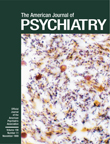The Erotic Imagination: French Histories of Perversity
This scholarly work was written while the author was in his psychiatry residency. It will be of value to all psychiatrists who are interested in the human condition in all its manifestations: normal, abnormal, historical, philosophical, and political. Reading it takes time because the author argues that “the modern idea of the perverse first emerged in late 18th century France and was shaped largely by the strange confluence of medical writings, patient confessions, and literary narratives,” as well as political circumstances. The reader must adapt to terminology used at that time, such as the “solitary vice” and “onanism” (masturbation), “inverts” (homosexuals), “uterine fury” (nymphomania), etc. It is worth the effort to follow the author’s scholarly integration of the literature, medical science, and politics of the eighteenth century, which establishes the historical background for the contemporary attitude of our society to sexuality in all its expressions.
Particularly fascinating to me was the role that physicians took in validating the harm that perversity can cause, without any scientific basis. The physician’s reputation and literary skills were the total basis for acceptance by politicians, lawyers, judges, and others. The author guides us through a time when power was the basis for deciding what was good or bad and what needed to be punished. The physicians became bedfellows, so to speak, with politicians and lawyers and provided scientific credibility to laws, attitudes, and behaviors aimed at dealing with the threat of those who were perverted. The quotations and excerpts are particularly powerful, because they now appear so extreme in their attempts to explain how the perversions are “threatening to the social order, national population, military power, and the supremacy of will and reason.”
There is an excellent discussion of Freud’s theory of sexuality in relationship to the thesis of the book that is presented as a psychoanalytic supplement. An extensive bibliography and notes to each chapter are also provided.
The effort to put on a scholarly thinking cap and read this book will reap the reward of a new perspective and understanding of the historical and philosophical background of not only personal attitudes but also society’s attitudes toward what have been called sexual perversions.



